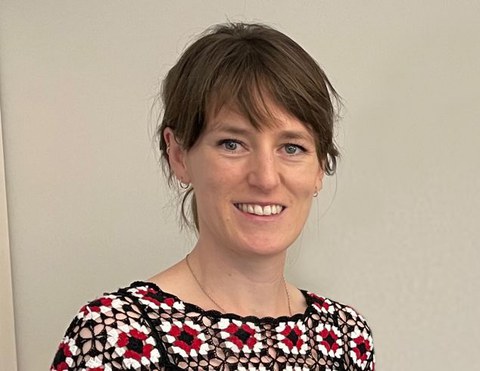Mar 26, 2024
TUD scientist Dr. Claire Donnelly receives prestigious Heinz Maier-Leibnitz Prize

Dr. Claire Donnelly
Science Minister Sebastian Gemkow congratulates on outstanding success
Media information from the Saxon State Ministry for Science, Culture and Tourism
One of the most important science awards in Germany will also be presented to two Saxon researchers this year. Dr. Claire Donnelly from the Max Planck Institute for Chemical Physics of Solids and TUD Young Investigator at the TUD Dresden University of Technology and Junior Professor Dr. Sebastian Sippel from Leipzig University will receive the 2024 Heinz Maier-Leibnitz Prize from the German Research Foundation (DFG). This was decided today by the DFG's Joint Committee.
This means that two of only ten awards in Germany will go to Saxony.
With this award, the DFG recognizes outstanding researchers who are still at the beginning of their careers. The award is intended as an incentive to continue their career with determination. The prize is endowed with 200,000 euros. In the past 25 years, a total of eleven Saxon scientists have been honored with this prestigious award.
Science Minister Sebastian Gemkow commented:
"I warmly congratulate Dr. Donnelly and Dr. Sippel on this success. The fact that they have been selected as prize winners shows the extraordinary research achievements that both of them have already made at the beginning of their scientific careers. Their work in two fields of cutting-edge research is also proof of the great capabilities of their places of work, the Max Planck Institute for Chemical Physics of Solids, TU Dresden and Leipzig University respectively, as well as the Saxon research landscape as a whole."
The award winners from Saxony: (Source: DFG press release)
Dr. Claire Donnelly, Experimental Solid State Physics, Max Planck Institute for Chemical Physics of Solids, Dresden, and TU Dresden
The unique physical properties of nanomaterials, i.e. materials with very small dimensions of one to 100 nanometers (a nanometer is one millionth of a millimeter), have been opening up new possibilities in technology and science for years. Within microscopically small solid-state structures, nanometer-scale areas can be distinguished that have completely different magnetic properties. Physicist Claire Donnelly wants to find out more about these magnetic nanoranges. Her research has already led to the fact that the magnetic properties of tiny three-dimensional solid-state systems can now be investigated and spatially represented with an accuracy of a few tens of nanometers - and with a temporal resolution in the picosecond range, i.e. a trillionth of a second. Her current work is also dedicated to the production of nanomaterials with specific magnetic properties in a targeted manner.
Junior Professor Dr. Sebastian Sippel, Climate Research, Leipzig University
Whether drought, heavy rain, storms or hail - to what extent are extreme weather events linked to climate change? Geoecologist and climate researcher Sebastian Sippel is investigating this question. He is working in the still young research field of climate attribution, in which the relative contributions of various causal factors to a climate event are evaluated. His work has already made a fundamental contribution to our understanding of climate change and its effects. For example, using a newly developed methodology, he showed that climate change can be detected as a global fingerprint in every single daily weather pattern after 2012. In another study, he succeeded in quantifying the influence of natural climate fluctuations on time scales over several decades. In his diverse work, he also deals with the effects of global climate change on the water and carbon cycle.
About the prize:
The Heinz Maier-Leibnitz Prize is awarded annually to outstanding researchers at an early stage of their scientific careers. It has been named after the nuclear physicist and former DFG President Heinz Maier-Leibnitz since 1980 and is considered the most important prize in Germany for the promotion of scientific personalities at an early stage of their careers. Up to and including 2022, the DFG and the Federal Ministry of Education and Research (BMBF) awarded the prizes jointly. Since 2023, the DFG has awarded the prizes independently and increased the prize money from 20,000 to 200,000 euros per prizewinner.
Press release of the DFG(https://www.dfg.de/de/service/presse/pressemitteilungen/2024/pressemitteilung-nr-08)
Contact:
Saxon State Ministry for Science, Culture and Tourism
Press Officer Falk Lange
